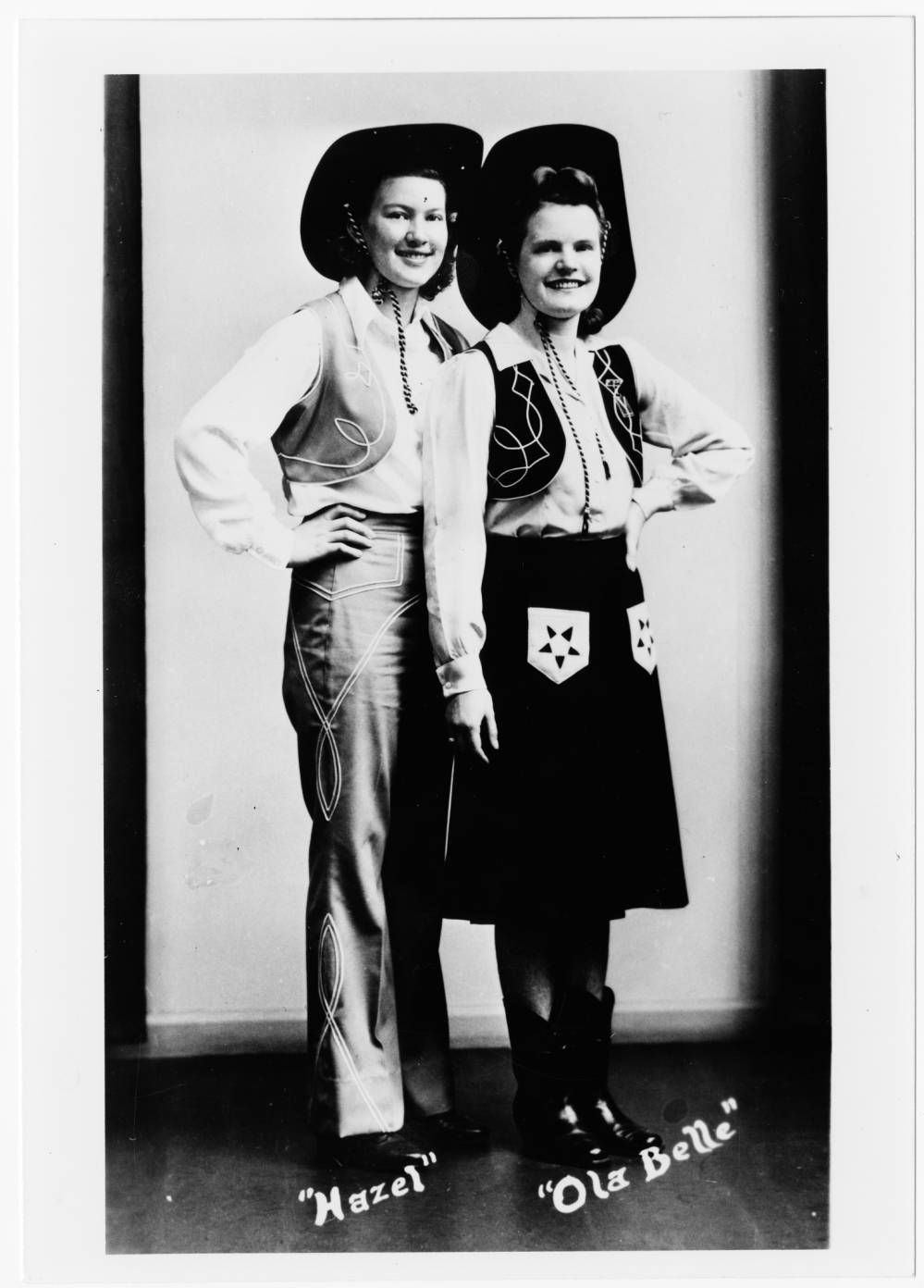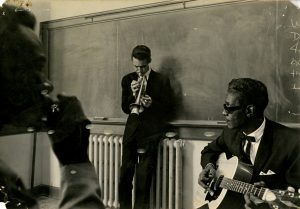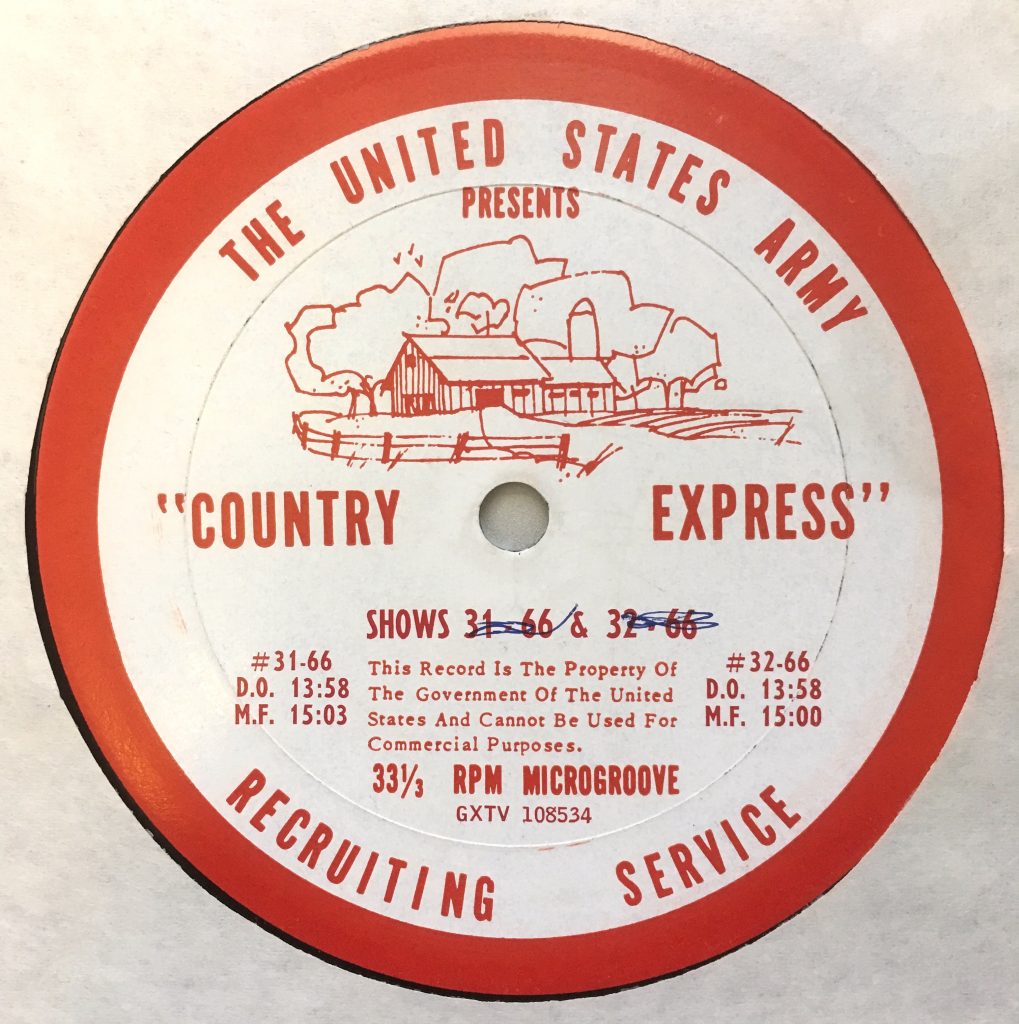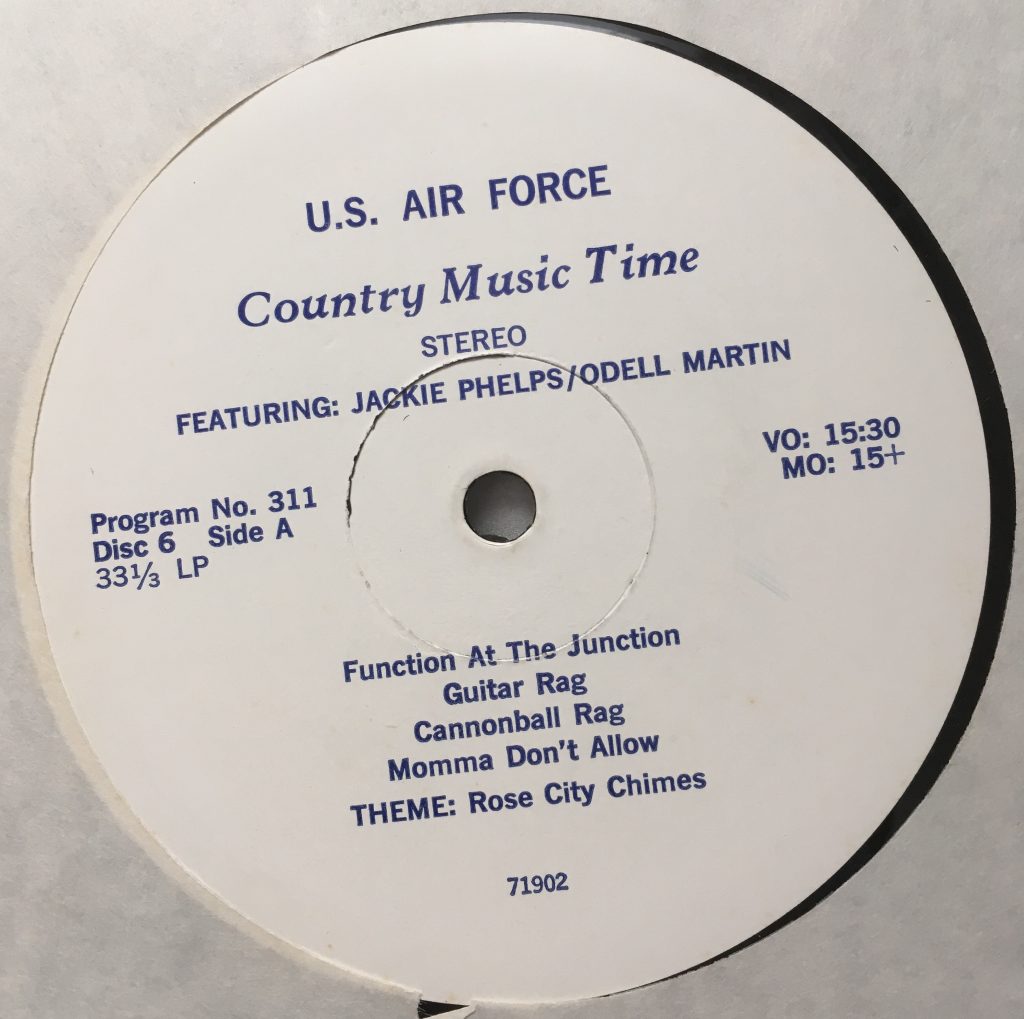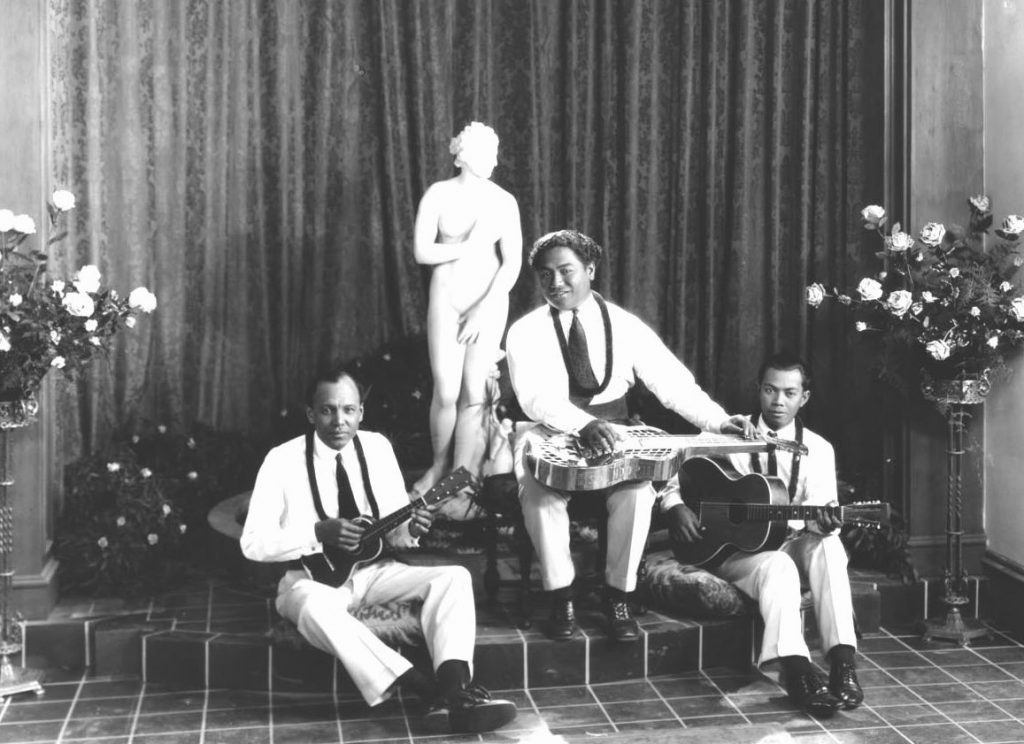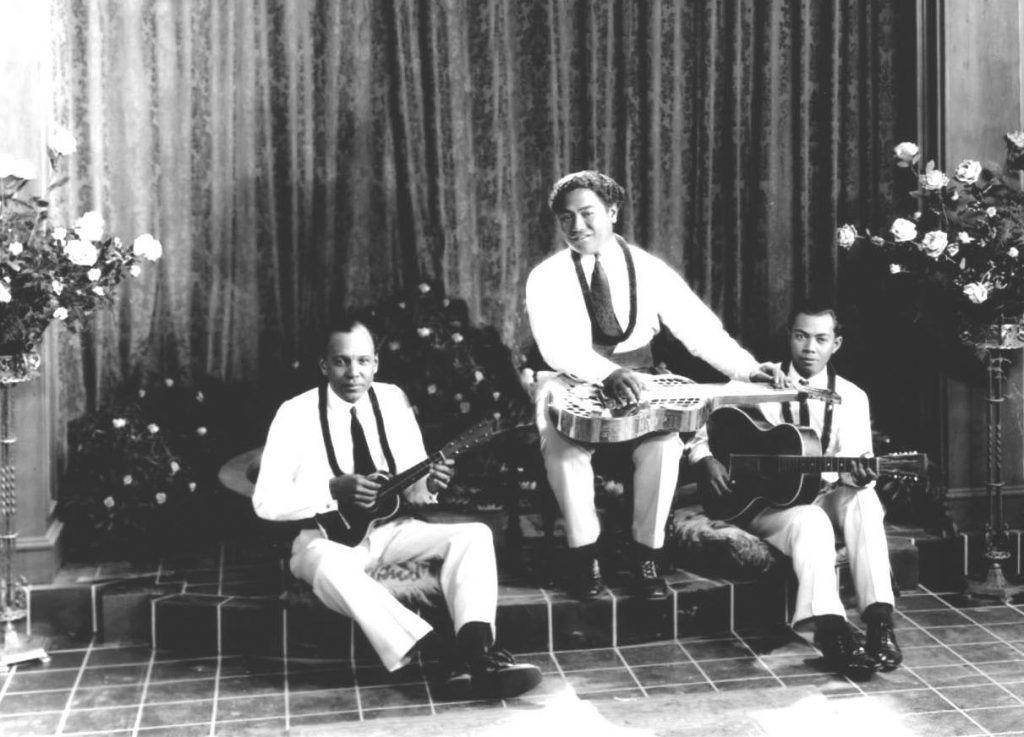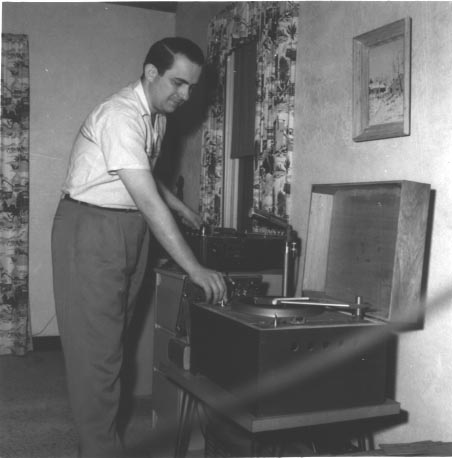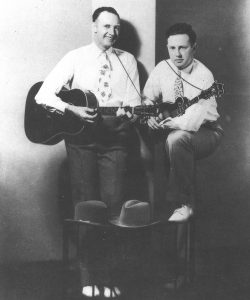Tatiana Hargreaves is a first year graduate student at UNC’s School of Information and Library Science Master of Science in Library Science program. She is a lecturer of bluegrass fiddle in the music department at UNC and performs internationally with banjo player Allison de Groot. She received her BA in ethnomusicology and music performance from Hampshire College in 2017.
Ola Belle Reed: Subject Guide
There are numerous published recordings of Ola Belle Reed and her music, but biographical material outside of album liner notes are harder to find. The book Ola Belle Reed and Southern Mountain Music on the Mason-Dixon Line (2015) by Henry Glassie, Clifford R. Murphy and Douglas Dowling Peach is the only released biography of her life. The Southern Folklife Collection holds many resources relating to Reed, including the manuscript for her unpublished autobiography “High on a Mountain”.
This blogpost can serve as a starting guide to resources about Ola Belle Reed in the Southern Folklife Collection, UNC libraries, and beyond.
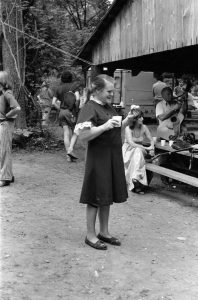
Born in 1915 in Ashe County, North Carolina, Ola Belle Campbell Reed grew up in a large musical family. During the Depression, her family joined the many migrants moving from the Southern Mountains to more urban areas farther North. By the time she was a teenager, Reed was already performing with her brother in the North Carolina Ridge Runners. After marrying Bud Reed in 1949, Ola Belle, Bud and her brother Alex Campbell opened the New River Ranch music park which became a popular stop for bluegrass and country performers throughout the 1950s. Throughout the 1970s, Reed performed at many folk festivals and in 1986 was awarded the National Heritage Fellowship. She passed away in 2002 after thirteen years of illness. Reed’s prolific songwriting has endeared her to the country, bluegrass and old-time music communities where her songs are performed frequently.
Collections in the Southern Folklife Collection that include Ola Belle Reed:
This collection primarily includes audio recordings, some news clippings and the manuscript for Reed’s unpublished autobiography. The audio recordings are a mixture of live performances and more intimate interviews, conversations and home music recordings. The conversation topics range from music, religion and politics to pollution, sex education, love and more. Reed’s unpublished autobiography, “High on a Mountain” was written with the help of David Reed and Josh Dunson.
Ola Belle singing “If I Could Read My Titles Clear”
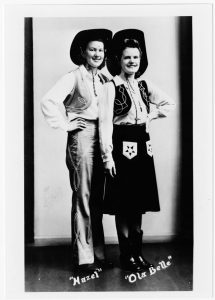
Ola Belle singing “Old Pal of Yesterday” with her old friend Hazel Waltman
Listen to the full tape here (SFC Audio Open Reel FT-20010/9663)
This collection includes four open reel recordings and two videos of Reed and her family from 1972.
This collection includes audio recordings from performances and parties and photographs of Ola Belle Reed, primarily from the New River Ranch Music Park in Rising Sun, Maryland that Reed ran with her husband Bud Reed.
On the two clips below, you can hear Ola Belle Reed in a more casual setting at a party at George Holt’s house in Durham, North Carolina on November 2nd, 1986. The recording features Ola Belle with Alice Gerrard (guitar) and Andy Cahan (fiddle).
Wild Bill Jones
What Would You Give In Exchange For Your Soul
Listen to the full tape here (SFC Audio Cassette FS-20006/8695)

This collection also includes audio recordings and photographs of Ola Belle Reed, primarily from the New River Ranch Music Park in Rising Sun, Maryland.
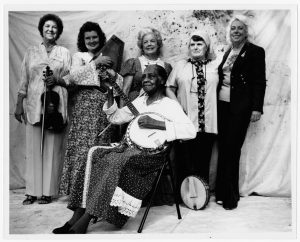
The Eugene Earle collection contains several open reel recordings of Ola Belle including recordings from Sunset Park, New River Ranch and the Philadelphia Folk Festival. Ola Belle is spelled “Olabelle” in the collection.
Ola Belle Reed appears on two open reels in the Kuykendall collection, both at New River Ranch. SFC Audio Open Reel FT-20546/259 features Reno and Smiley with a brief appearance by Ola Belle reed and the New river Ranch Gang. SFC Audio Open Reel FT-20546/80 features the Monroe Brothers and others, including “Aunt Ola Bell”. An open reel for the Carter Stanley memorial concert also references Ola Belle’s band “The New River Boys.”
North American Traditions Collections
This collection contains six sides of Reed’s recordings for the 1977 album Ola Belle Reed and Family, including several unissued cuts.
This collection includes photographs of Ola Belle Reed at Yale University in 1975-1978 and recordings from Calhoun college in 1975 and 1976.
Southern Folk Cultural Revival Project
Correspondence, publicity, tour planning and photos related to Ola Belle Reed’s involvement with the Southern Folk Cultural Revival Project, an organization that presented integrated concerts, tours and other events with Black and white musicians in the South during the late 1960s – 1980s.
Mary Katherine Aldin Artist Files
This collection includes an artist file for Ola Belle Reed.
SFC Audio Cassette FS-20550/2: Gospel Workshop, 1980 with Ola Belle Reed, Janette Carter, Elizabeth Cotten and Lily May Ledford.
Festival of the Eno 1976 (from North Carolina Folklore Broadcast collection )
Ola Belle Reed performs at the 1976 Festival of the Eno in Durham, North Carolina.
North Carolina Folklife Festival in Durham (no finding aids)
https://catalog.lib.unc.edu/catalog/UNCb2454121
https://catalog.lib.unc.edu/catalog/UNCb2454111
Ola Belle Reed’s Published Recordings available via UNC Libraries
Ledford, Lily M, Ramona Jones, Ola B. Reed, Suzanne Thomas, Elizabeth Cotten, Janette Carter, and Rose Maddox. Women of Old Time Music. Galax, Va: Heritage Records, 1981. Sound recording. (https://catalog.lib.unc.edu/catalog/UNCb1968852 )
Reed, Ola B. Ola Belle Reed. Somerville, Mass: Rounder Records, 1973. Sound recording. ( https://catalog.lib.unc.edu/catalog/UNCb3694398 )
Reed, Ola B. Ola Belle Reed & Family. Somerville, Ma: Rounder Records, 1977. Sound recording. ( https://catalog.lib.unc.edu/catalog/UNCb3760572 )
Reed, Ola B, Bud Reed, and Kevin Roth. All in One Evening. New York: Folkways Records, 1978. Internet resource. ( https://catalog.lib.unc.edu/catalog/UNCb6647946 )
Reed, Ola B, Bud Reed, and David Reed. My Epitaph. Washington, D.C.: Smithsonian Folkways, 2001. Internet resource. ( https://catalog.lib.unc.edu/catalog/UNCb6646754 )
Reed, Ola B. Ola Belle Reed. Croton, N.Y.: Field Recorders’ Collective, 2005. Sound recording. (https://catalog.lib.unc.edu/catalog/UNCb7849893)
Reed, Ola B, Alex Campbell, Sonny Miller, Deacon Brumfield, and Paul Sidlick. Campbell’s Corner: The Ola Belle Reed – Alex Campbell Radio Shows. Place of publication not identified: Field Recorders’ Collective, 2009. Sound recording. (https://catalog.lib.unc.edu/catalog/UNCb7849907)
Reed, Ola B. Rising Sun Melodies. Washington, DC: Smithsonian Folkways, 2010. Sound recording. (https://catalog.lib.unc.edu/catalog/UNCb8619409)
Compilations with the North Carolina Ridge Runners (available via UNC libraries & special collections)
Grayson, G B, Henry Whitter, Frank Blevins, Ephraim Woodie, and Jack Reedy. Music from the Lost Provinces. Raleigh, N.C: Old Hat, 1997. Sound recording. (https://catalog.lib.unc.edu/catalog/UNCb3813077)
Authentic Rare Bluegrass Cuts. London, England: JSP Records, 2008. Sound recording. (https://catalog.lib.unc.edu/catalog/UNCb7868996 )
Books about Ola Belle Reed available via UNC Libraries
Other resources related Ola Belle Reed:
UNC electronic resources for online newspaper, magazine, journal articles and reviews
The Ola Belle Reed Collection at University of Maryland, Baltimore County:
Ola Belle Reed collection (umbc.edu)
Jason Pate Collection (University of Maryland, Baltimore County https://library.umbc.edu/speccoll/findingaids/coll123.php)
Information about an upcoming documentary, “I’ve Endured”: The music and legacy of Ola Belle Reed can be found here: https://mdfolklife.org/ive-endured-the-music-and-legacy-of-ola-belle-reed/
This 2005 blogpost by Stephen Winick at the American Folklife Center includes a list of Ola Belle Reed related collections housed at the AFC: https://blogs.loc.gov/folklife/2015/09/on-ola-belle-reed/
To end, here is a beautifully written quote from Cathy Fink about her experiences with Ola Belle Reed:
“A visit with Ola Belle was always an amazing experience. The door was open, soup was on the stove, and an afternoon of conversation and music always left you with a full feeling. A philosopher and a philanthropist of the heart, Ola Belle was always there to help out a kid in need or a musician getting their feet on the ground…Ola Belle was ready for the world to change during the civil rights movement. Her song “Tear Down the Fences” questions why we spend energy building fences and not bridges between us. She was a feminist before that movement ever took hold, penning a powerful song, “Only the Leading Role Will Do.” But most importantly, she was an egalitarian.”
Fink, Cathy. “Last Chorus: Ola Belle Reed – 1916-2002.” Sing Out, vol. 46, no. 4, 2003, pp. 27-29.

